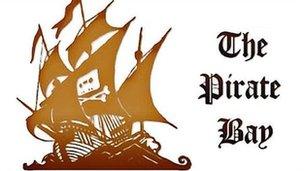Porn, piracy and the internet culture wars
- Published
- comments
ISPA: "It is not for us to police online content"
On the Today Programme this morning you could hear the sound of a great cultural divide opening up over the policing of the internet, external. Following the court ruling ordering Internet Service Providers to block access to the Pirate Bay, the programme invited a politician and a representative from the internet industry to discuss the issues raised.
The politician was Claire Perry MP, who has been leading the fight to get internet providers to do more to police the internet and protect children from pornography. She squared up to Nicholas Lansman of the Internet Service Providers Association - surprise, surprise, none of the big ISPs seemed keen to put their heads above the parapet.
The discussion did not really focus on the practicalities of blocking The Pirate Bay - which many in the internet industry believe will be ineffective - but on the responsibility of ISPs in general to act against any illegality online.
Mrs Perry, who wants internet users to have to opt in to access to pornography, insisted that this was not about web censorship of the kind we see in Burma or China but about giving parents the ability to protect children. Mr Lansman pointed out that his industry was giving consumers the filtering tools to block access to pornographic material, but was not keen to impose their use, or to end up policing the internet.

The Pirate Bay is hosted in Sweden
Now there's little doubt that Mrs Perry speaks for a wide strand of public opinion which would like to see internet firms be more proactive in child protection. The Daily Mail, with its instinct for Middle England's concerns, has given her campaign vigorous backing.
But just look at the reaction on Twitter and in emails to this morning's debate, and you will see a rather different view. Many believed the discussion showed a fundamental lack of understanding of the internet, and some that it was the job of parents, not ISPs, to block children's access to unsuitable internet sites. "You want DIY stores to be responsible for what buyers of crowbars do with them," asked one tweeter.
And as for the Pirate Bay blocking orders, there was widespread outrage online at the very idea that the music industry should act to stop consumers getting access to copyright material. "UK ISP blocking of #piratebay is the beginning of the end - equivalent to China's censorship policy. What's next?" read one message.
In summary, there is a gulf opening up between two views of the internet. On the one side, you've got those who feel strongly that there needs to be far more effective regulation, with action to block access to certain websites, and child protection trumping any concerns about censorship.
On the other, a libertarian strand online is opposed to any limits on how individuals use the internet, and views action to prevent access to copyright material or pornography as not only ineffective but morally wrong.
On some issues - notably government plans for greater web surveillance - some of the pro-regulation camp will shift to the libertarian side. But, as media firms step up their battle against piracy and popular newspapers demand action from politicians on web filtering, the internet culture wars are going to get more heated.